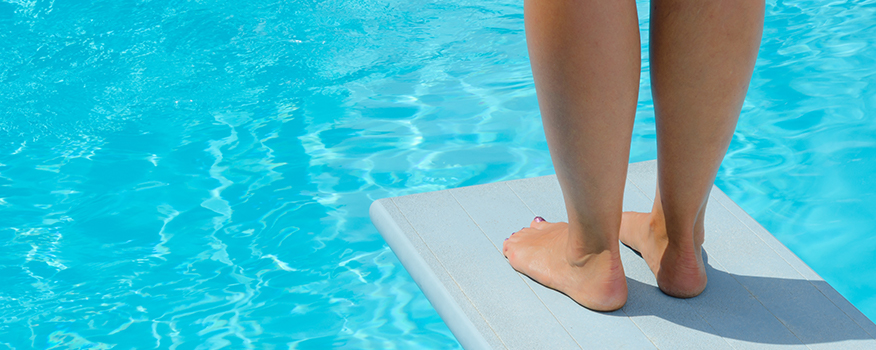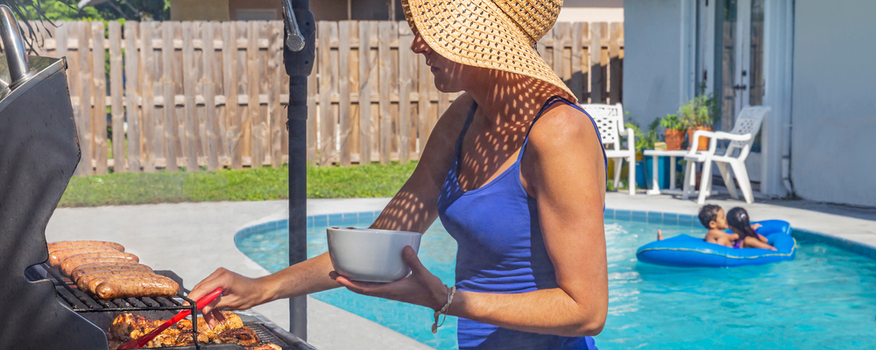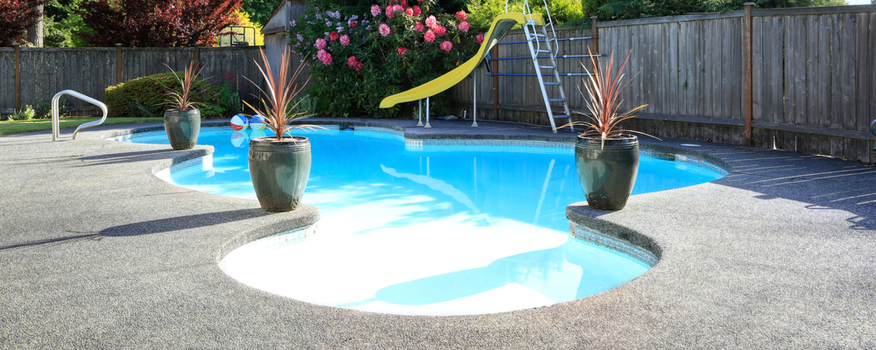If you have been called to build or expand a swimming pool, your clients might be looking to add such popular accessories as a diving board or slide.
If you are a customer, you may have watched your original pool being built and witnessed all the complexities involved. Maybe you’re thinking of adding a diving board, a slide or safety railing and wonder if you can install them yourself. The short answer is probably not.
 Whether you’re a pro or a DIYer, you know how critical it is to build safety into a swimming pool design. These include nonskid pool decks, water cleansing systems and safety fences.
Whether you’re a pro or a DIYer, you know how critical it is to build safety into a swimming pool design. These include nonskid pool decks, water cleansing systems and safety fences.
Installing pool features involves a different level of safety. There are a lot of interactive components and a complex relationship between metal, water and electricity. That is where proper bonding and grounding system come in. These pool construction steps are what keep occupants safe from electric shock; they are steps that cannot be skipped.
Obvious potential causes of shock in pools are electrical components like pumps and underwater lights; but non-electrical components need bonding or grounding, as well. These accessories include diving boards, slides and pool rails.
According to the National Electrical Code (NEC), pool builders must bond all support bolts and rebar within five feet of the pool wall to the equipotential ground system. To minimize the risk of electric shock in swimming pools, it is critical to follow all codes in the NEC related to proper bonding and grounding.
It is also important to understand the fundamentals of bonding and grounding.
Bonding is a wiring process that joins electrical and metallic components of the pool together. Essentially, it forms a safe path for the components. Bonding connects and contains the transmission of any electrical voltage that could damage pool equipment or hurt occupants.
Without a proper bonding system in place, water and metal pool equipment like diving boards, rails and slides can conduct stray electrical current.
To mitigate stray voltage in a pool, you can install an equipotential bonding grid below the deck. This safety measure acts as an outlet for any stray voltage that may be generated.
Grounding is the process of connecting pool components to the earth, or ground. It is used to provide a path of least resistance for electrical current to the ground and away from the pool and its components and occupants. Grounding is what connects the pool’s electrical network to the panel and then to the earth to dissipate any “leaking” electricity. If there is a fault in the grounding system, a swimmer or metal component can complete the circuit and become a conductor. The result can be dangerous, or even deadly, electric shock.
If you are going to enlarge a swimming pool, it is vital to start with a proper foundation that mitigates shock risk. NEC-compliant bonding and grounding systems serve two important purposes: they lessen your liability and ensure that your clients enjoy many years of safe fun with their diving board or pool slide.
To learn more, call us now at (919) 781-3411.



